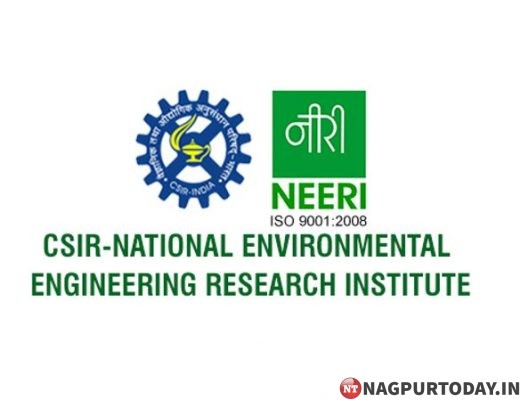Nagpur: CSIR-National Environmental Engineering Research Institute (CSIR-NEERI) recently organized a webinar on “Development in Methodology and Tools for Impact Analysis and Risk Assessment”. The objective of this webinar was to proliferate methodological tools for environmental impact and risk assessment and improve the effectiveness of the use of environmental impact analyses in decision-making.
Approximately 900 representatives from industries, academics, regulatory authorities, research institutes, etc. participated in the webinar. The expert panellists were Dr. Deepak Apte, Chairman, EAC-Infrastructure, Ministry of Environment, Forest and Climate Change (MoEFCC); Dr. J. P. Gupta, Chairman, Expert Appraisal Committee (EAC)-Industry II, MoEFCC; Prof. Sharad K. Jain, Chairman, EAC-River Valley & Hydroelectric, MoEFCC; Dr.Vijay Kulkarni, Executive Vice-President, Shapoorji Pallonji & Company Pvt. Ltd.; Prof. A.K. Gosain, IIT-Delhi; Dr. M.V. Ramana Murthy, EAC Member–Infrastructure, MoEFCC; Dr. J. S. Sharma, EAC, Member-Industry II, MoEFCC; Dr. Rakesh Kumar, Director, CSIR-NEERI; Dr. M. Suresh Kumar, Chief Scientist & Head, Environmental Impact and Sustainability Division (EISD), CSIR-NEERI and Dr. Santosh Ghuge, Sr. Scientist, CSIR-NEERI.
Dr. Gupta advocated to set-up a Centre of Excellence (CoE) in India to investigate the root cause of major chemical incidents to protect people and the environment. He signified the importance of 3D modelling in process safety and risk management. He stressed upon the virtual reality-based safety training to predict more accurate impacts. Dr. Ghuge illustrated that a 3D model has a number of advantages over traditional 2D approaches to risk assessment for industrial safety. Dr. Apte expressed concern over environmental impact assessment (EIA) of the proposed Navi Mumbai Airport, as it harbours extensive bird diversity. Prof. Gosain pointed out that without accurate, authentic and enough data it is difficult to run mathematical models to meet the standard desired in environmental impact assessment. Dr. Jain exhorted that the studies concerning assessment of river valley projects should more rely on primary data gathered through field surveys, satellites, drones, GIS, etc. Cumulative EIA should be undertaken through public consultation rather than participation, he added.
Sharing his international experience on EIA studies, Dr. Kulkarni stated that currently there are no specific guidelines for deciding the study area and sampling locations while conducting EIA studies. The leading Institutes like CSIR-NEERI, IITs, etc. should find out the basis in this regard, he added. Dr. Kulkarni said that we should do environmental and social impact assessment (ESIA) rather than just EIA. Dr. Bherwani highlighted the methodologies by which environmetal damages can monetarily be estimated.
He informed that the special report prepared by CSIR-NEERI on ‘Framework for Environmental Damage Cost Assessment with Examples” can act as a baseline tool for monetary assessment of environmental impacts and be useful for policy makers, industries, regulatory authorities, etc. Dr. Sharma advised to link the risk assessment study of a particular industry or plant with social impact assessment, climate change and biodiversity index. Highlighting the EIA methodology and tools for coastal development projects, Dr. Murthy focused on the need to develop automated sensors for coastal environmental monitoring.
Earlier, in his inuagural address, Dr. Rakesh Kumar briefed about the preventive risk assessment and auditing to develop a system that allows processing of information for analysis and industrial risk management. This would help to monitor the level of industrial safety and perform necessary measures aimed at the prevention of accidents, he added. In his welcome address, Dr. Suresh Kumar outlined the purpose and scope of environmental impact and risk assessment to seek expert opinions on the theme of the webinar. Dr. M. Karthik proposed vote of thanks. Dr. Santosh Ghuge and Dr. M Karthik coordinated the workshop.













